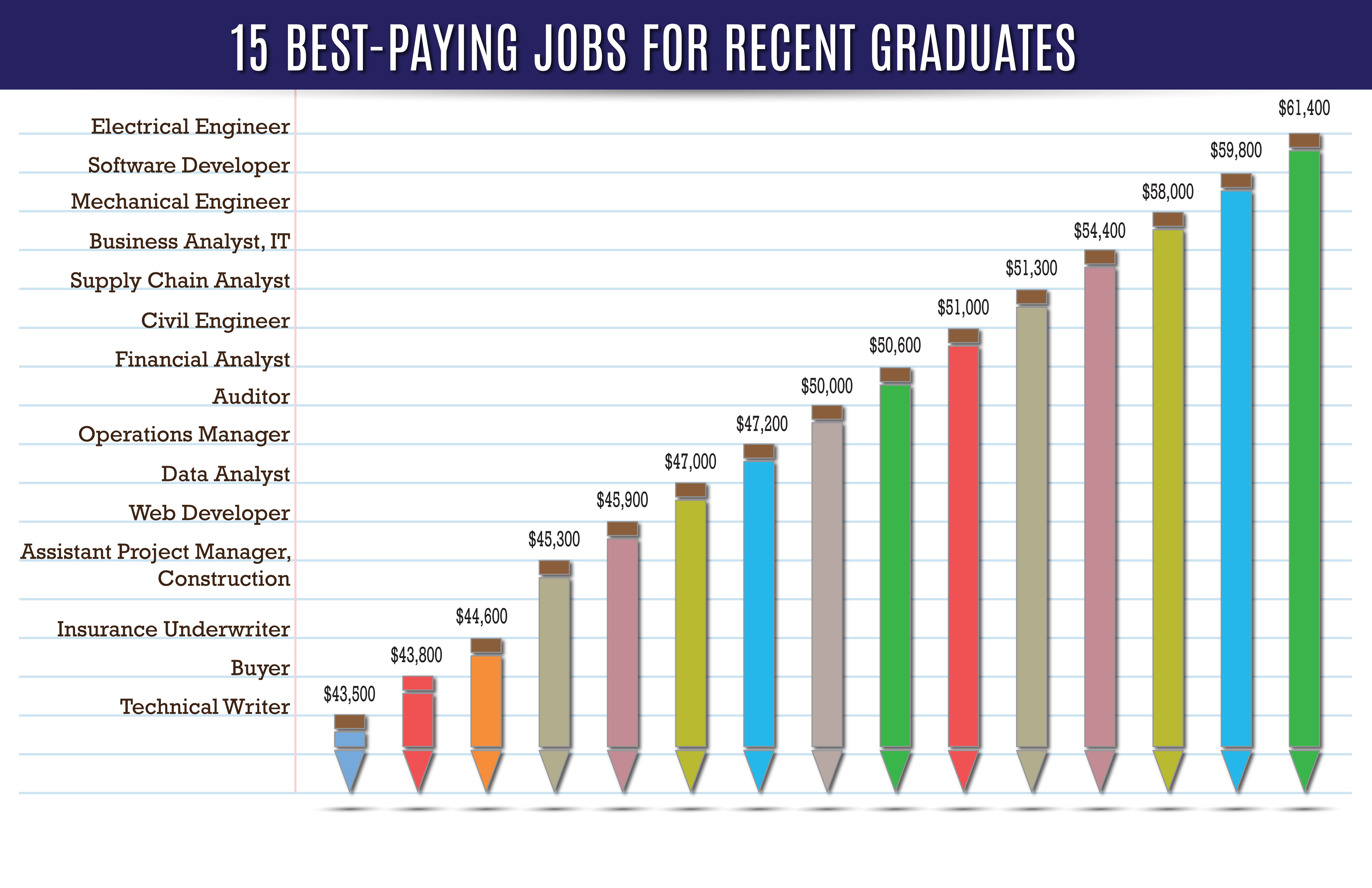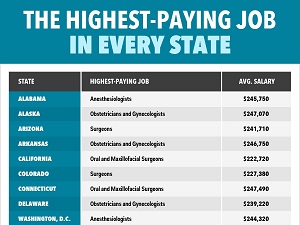Understanding the Factors that Influence Salary Potential
When it comes to determining what job makes a lot of money, several factors come into play. Industry, location, experience, and skills are just a few of the key elements that can significantly impact earning potential. For instance, jobs in the finance and technology sectors tend to offer higher salaries due to the high demand for specialized skills and the potential for significant revenue generation. Similarly, locations with a high cost of living, such as major cities, often come with higher salary ranges to compensate for the increased expenses.
Experience is another crucial factor that can influence salary potential. As individuals gain more experience in their field, they become more valuable to their employers and can command higher salaries. Additionally, developing in-demand skills can also lead to increased earning potential, as companies are willing to pay a premium for employees with expertise in areas such as data science, cybersecurity, and artificial intelligence.
It’s also worth noting that certain industries, such as healthcare and energy, often require specialized education and training, which can lead to higher salary ranges. For example, jobs in the healthcare industry, such as physicians and dentists, typically require many years of education and training, resulting in higher earning potential. Similarly, jobs in the energy industry, such as petroleum engineers, often require specialized degrees and certifications, leading to higher salary ranges.
Understanding these factors can help individuals make informed decisions about their career choices and identify opportunities that have the potential to lead to higher earning potential. By considering industry, location, experience, and skills, individuals can increase their chances of landing a high-paying job and achieving long-term financial success.
Top High-Paying Jobs Across Various Industries
When it comes to identifying what job makes a lot of money, it’s essential to explore various industries and their corresponding high-paying job opportunities. Here are some top high-paying jobs across different industries:
Healthcare: Physicians and surgeons are among the highest-paid professionals in the healthcare industry, with median salaries ranging from $208,000 to over $600,000 per year. Other high-paying jobs in healthcare include pharmacists, dentists, and orthodontists.
Finance: Investment bankers, hedge fund managers, and private equity managers are among the top earners in the finance industry, with median salaries ranging from $100,000 to over $1 million per year. Other high-paying jobs in finance include financial analysts, portfolio managers, and risk management specialists.
Technology: Software engineers, data scientists, and product managers are among the highest-paid professionals in the technology industry, with median salaries ranging from $100,000 to over $200,000 per year. Other high-paying jobs in technology include DevOps engineers, cybersecurity specialists, and artificial intelligence engineers.
Energy: Petroleum engineers, renewable energy engineers, and energy traders are among the top earners in the energy industry, with median salaries ranging from $100,000 to over $200,000 per year. Other high-paying jobs in energy include energy consultants, sustainability specialists, and environmental engineers.
These high-paying jobs often require specialized skills, education, and experience. However, they also offer a high level of job satisfaction, opportunities for advancement, and a sense of personal fulfillment. By exploring these industries and job opportunities, individuals can increase their chances of landing a high-paying job and achieving long-term financial success.
How to Increase Your Earning Potential in Your Current Job
While exploring new career opportunities can be exciting, it’s also essential to consider ways to increase your earning potential in your current job. By developing in-demand skills, taking on additional responsibilities, and negotiating salary increases, you can significantly boost your earning potential and achieve long-term financial success.
One of the most effective ways to increase your earning potential is to develop in-demand skills that are highly valued by your employer. This can include acquiring certifications, attending workshops or conferences, or pursuing further education. By developing skills that are in high demand, you can position yourself for promotions, raises, and other opportunities that can increase your earning potential.
Taking on additional responsibilities is another way to increase your earning potential. By volunteering for new projects, taking on more complex tasks, and demonstrating your capabilities, you can demonstrate your value to your employer and make a strong case for a salary increase. Additionally, taking on more responsibilities can also help you develop new skills and gain experience that can be applied to future career opportunities.
Negotiating salary increases is also a crucial aspect of increasing your earning potential. By researching industry standards, preparing a solid case for a raise, and confidently negotiating with your employer, you can secure a salary increase that reflects your value to the organization. Remember, negotiation is a normal part of the employment process, and employers expect it.
Finally, it’s essential to remember that increasing your earning potential is an ongoing process that requires continuous learning, professional development, and strategic planning. By staying focused on your career goals, developing in-demand skills, and taking on additional responsibilities, you can unlock new opportunities and achieve long-term financial success.
The Role of Education and Certifications in High-Paying Careers
Education and certifications play a crucial role in securing high-paying jobs. Certain degrees and certifications can lead to higher salary potential and open doors to new career opportunities. In this section, we will explore the importance of education and certifications in high-paying careers and provide examples of high-paying jobs that require specific educational backgrounds.
In many industries, a bachelor’s degree is the minimum educational requirement for high-paying jobs. For example, in the field of engineering, a bachelor’s degree in a relevant field such as mechanical engineering, electrical engineering, or computer engineering is often required for high-paying jobs. Similarly, in the field of finance, a bachelor’s degree in finance, accounting, or business administration is often required for high-paying jobs.
However, in some industries, a master’s degree or higher is required for high-paying jobs. For example, in the field of medicine, a medical degree (MD) or a doctor of osteopathic medicine (DO) degree is required for high-paying jobs such as physicians and surgeons. Similarly, in the field of law, a juris doctor (JD) degree is required for high-paying jobs such as lawyers and judges.
Certifications can also play a crucial role in securing high-paying jobs. For example, in the field of technology, certifications such as CompTIA A+, Cisco CCNA, or Microsoft MCSA can lead to high-paying jobs such as network administrators, cybersecurity specialists, or software developers. Similarly, in the field of finance, certifications such as Chartered Financial Analyst (CFA) or Certified Public Accountant (CPA) can lead to high-paying jobs such as financial analysts, portfolio managers, or auditors.
In addition to formal education and certifications, many high-paying jobs also require specialized training or experience. For example, in the field of aviation, pilots must undergo extensive training and obtain a commercial pilot’s license to fly for airlines. Similarly, in the field of healthcare, nurses must undergo extensive training and obtain a nursing license to work in hospitals or clinics.
In conclusion, education and certifications play a crucial role in securing high-paying jobs. By investing in formal education and certifications, individuals can increase their earning potential and open doors to new career opportunities.
Emerging High-Paying Careers in Growing Industries
As the job market continues to evolve, new and emerging industries are creating high-paying career opportunities that are in high demand. In this section, we will explore some of the emerging high-paying careers in growing industries such as renewable energy, cybersecurity, and data science.
Renewable Energy: As concern for the environment continues to grow, the demand for renewable energy professionals is on the rise. Careers in solar and wind energy, energy efficiency, and sustainable development are becoming increasingly popular and lucrative. For example, solar engineers can earn an average salary of $95,000 per year, while wind energy engineers can earn an average salary of $85,000 per year.
Cybersecurity: With the increasing threat of cyber attacks, companies are looking for professionals who can protect their networks and systems. Careers in cybersecurity, such as security analysts and penetration testers, are in high demand and can earn average salaries ranging from $80,000 to over $150,000 per year.
Data Science: As data becomes increasingly important for businesses, the demand for data scientists is on the rise. Careers in data science, such as data analysts and data engineers, can earn average salaries ranging from $80,000 to over $140,000 per year.
These emerging high-paying careers in growing industries offer a range of benefits, including job security, opportunities for advancement, and high earning potential. By pursuing a career in one of these fields, individuals can position themselves for long-term financial success and make a meaningful contribution to their industry.
In addition to these emerging careers, there are many other high-paying job opportunities in growing industries such as healthcare, finance, and technology. By staying up-to-date with industry trends and developments, individuals can identify new and emerging career opportunities that align with their skills and interests.
How to Transition into a High-Paying Career
Transitioning into a high-paying career can be a challenging but rewarding experience. Whether you’re looking to switch industries or advance in your current field, there are several steps you can take to increase your chances of success. In this section, we will explore some of the key strategies for transitioning into a high-paying career.
Identify Transferable Skills: One of the most important steps in transitioning into a high-paying career is to identify your transferable skills. Transferable skills are skills that can be applied to multiple industries and job roles, such as communication, problem-solving, and leadership. By highlighting your transferable skills, you can demonstrate your value to potential employers and increase your chances of landing a high-paying job.
Networking: Networking is a crucial part of transitioning into a high-paying career. By building relationships with people in your industry, you can learn about job opportunities, get advice, and gain access to valuable resources. Attend industry events, join professional organizations, and connect with people on LinkedIn to start building your network.
Building a Personal Brand: Building a personal brand is essential for transitioning into a high-paying career. Your personal brand is what sets you apart from others in your industry and showcases your skills, experience, and values. Create a professional online presence, including a LinkedIn profile and a personal website or blog, to showcase your skills and experience.
Upskilling and Reskilling: Upskilling and reskilling are critical for transitioning into a high-paying career. By acquiring new skills and knowledge, you can increase your earning potential and stay competitive in the job market. Consider taking courses, attending workshops or conferences, and pursuing certifications to upskill and reskill.
By following these strategies, you can increase your chances of transitioning into a high-paying career and achieving long-term financial success. Remember to stay focused, persistent, and adaptable, and always be open to new opportunities and challenges.
Common Traits of High-Paying Jobs
High-paying jobs often share certain characteristics that contribute to their high salary potential. In this section, we will analyze some of the common traits of high-paying jobs and explain how these traits contribute to higher salary potential.
High Demand: One of the most significant factors that contribute to high-paying jobs is high demand. When there is a high demand for a particular skill or profession, employers are willing to pay a premium to attract and retain top talent. For example, jobs in the technology industry, such as software engineers and data scientists, are in high demand and often command high salaries.
Specialized Skills: High-paying jobs often require specialized skills that are difficult to find in the job market. When a job requires a unique combination of skills and knowledge, employers are willing to pay a premium to attract and retain top talent. For example, jobs in the healthcare industry, such as surgeons and anesthesiologists, require specialized skills and knowledge and often command high salaries.
Limited Supply: Another factor that contributes to high-paying jobs is limited supply. When there is a limited supply of workers with a particular skill or profession, employers are willing to pay a premium to attract and retain top talent. For example, jobs in the finance industry, such as investment bankers and portfolio managers, often require specialized skills and knowledge and are in limited supply, which can drive up salaries.
By understanding these common traits of high-paying jobs, individuals can better position themselves for success in the job market. By developing in-demand skills, pursuing specialized education and training, and building a strong professional network, individuals can increase their earning potential and achieve long-term financial success.
Additionally, individuals can also consider emerging industries and job roles that are in high demand and have limited supply. For example, jobs in the renewable energy industry, such as solar engineers and wind turbine technicians, are in high demand and have limited supply, which can drive up salaries.
Conclusion: Unlocking Your Earning Potential
In conclusion, unlocking your earning potential requires a combination of education, skills, and experience. By understanding the factors that influence salary potential, identifying high-paying job opportunities, and developing in-demand skills, individuals can increase their earning potential and achieve long-term financial success.
Remember, high-paying careers are not just limited to traditional industries such as healthcare, finance, and technology. Emerging industries such as renewable energy, cybersecurity, and data science are also creating new and exciting job opportunities that can lead to high earning potential.
Additionally, continuous learning and professional development are essential for staying competitive in the job market and achieving long-term financial success. By staying up-to-date with industry trends and developments, individuals can position themselves for success and increase their earning potential.
Finally, don’t be afraid to take action and pursue high-paying career opportunities. With the right education, skills, and experience, individuals can unlock their earning potential and achieve long-term financial success.
By following the tips and strategies outlined in this article, individuals can increase their earning potential and achieve long-term financial success. Remember to stay focused, persistent, and adaptable, and always be open to new opportunities and challenges.






